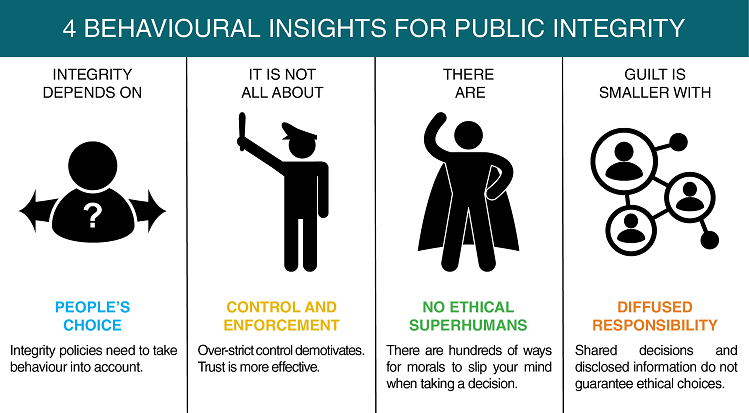Anti-corruption and integrity in the public sector

Behavioural Insights for Public Integrity
Harnessing the Human Factor to Counter Corruption
At the core of integrity is a human choice. Behavioural research reveals two determinants
of integrity: the internal dynamics of how individuals make moral decisions and how
these decisions are shaped and influenced by other people. This report describes how
behavioural insights can help make integrity and anti-corruption policies more effective
and efficient. It includes concrete policy applications and provides guidance for
policy makers on how to use behavioural insights in designing integrity and anti-corruption
policies.
Published on March 27, 2018Also available in: Spanish
In series:OECD Public Governance Reviewsview more titles
TABLE OF CONTENTS
Key insights
It is not all about control and enforcement. Over-strict controls demotivates. Trust
is more effective.
There are no ethical superhumans. We are all subject to ethical biases when taking
a decision.
Guilt is smaller with diffused responsibility. Shared decisions and disclosed information
do not guarantee ethical choices.
